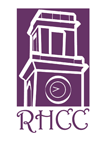 |
| Rocky Hill Congregational Church United Church of Christ 805 Old Main St., Rocky Hill, CT 06067 (860) 529-4167 an Open and Affirming church |

|
 Rocky Hill Congregational Church, United Church of Christ, Seeks Equal Rights for Adoptees in Connecticut In April, 2015, Rocky Hill Congregational Church, United Church of Christ, prepared a resolution on an issue seeking equal rights for adoptees in Connecticut. The resolution has passed through an initial denominational review process and will now be considered at the Annual Meeting of the Connecticut Conference of the United Church of Christ - the church's denominational and covenantal setting in the state. That meeting will be held on October 23-24. The resolution seeks support from the wider church to urge and persuade Connecticut legislators to restore to all adult adoptees access to their original birth certificates. Presently, every non-adopted adult citizen of Connecticut has the right to receive a copy of their original birth certificate, and beginning July 1, 2015, Connecticut law will restore that right to adult adoptees who were adopted on or after October 1, 1983. Adults adoptees who were adopted before October 1, 1983 are denied access to their original birth certificates. Among the key points made in the resolution is that by denying some adult adoptees access to their original birth certificates, these individuals are denied true and accurate information about their biological origin-keeping them from gaining fuller knowledge of their ancestry, ethnicity, medical history, and genetic information. The resolution states that denying access to an original birth certificate also denies adoptees from knowing a "basic part of their human story and identity" and limits "decisions about their health care...including care needed to save their lives." The issue was originally introduced to the church's Council (elected governing board) in January, 2015 by church member Brian Donahue, proposing that the church bring a resolution to the Annual Meeting of the Connecticut Conference UCC regarding access to original birth certificates for all adult adoptees in Connecticut. With the support of the Council, information about the issue was shared with, and discerned by, interested members of the congregation-including four presentations and discussions held between February and April, 2015. The last meeting was held in the church's sanctuary following worship on April 19, 2015. Consensus among that gathered group suggested that the Council consider sanctioning a committee to advance the resolution to the Annual Meeting of the Connecticut Conference UCC. During its meeting on April 21, 2015, the Council sanctioned an ad hoc committee to advance this social justice resolution to the fall Annual Meeting of the Connecticut Conference of the United Church of Christ on the issue of "granting equal rights to all adult adoptees to access their original birth certificate and accurate information about their origins." The committee includes: Brian Donahue, Ruth Fitzgerald, Jackie Little, Elaine Somes, and Bob Inderbitzen-and has included advice and guidance from the church's pastors, Rev. Dr. Brenda Pelc-Faszcza, Interim Senior Pastor, and Rev. Meghan Young, Acting Associate Pastor for Faith Formation. The resolution was completed by the committee, shared with the Council, and submitted to the Resolutions Committee of the Connecticut Conference UCC, which has endorsed it for presentation and vote at the Annual Meeting of the Conference in October. Prior to that meeting, there will be several discussion opportunities around the state, so that delegates from UCC churches around Connecticut can have a fuller understanding of the resolution and its background before their vote at the Annual Meeting itself. For more information, see "Frequently Asked Questions" and a statement by Access CT, a grassroots organization in the state that has been working on the issue of legal access.
About the Church: | |